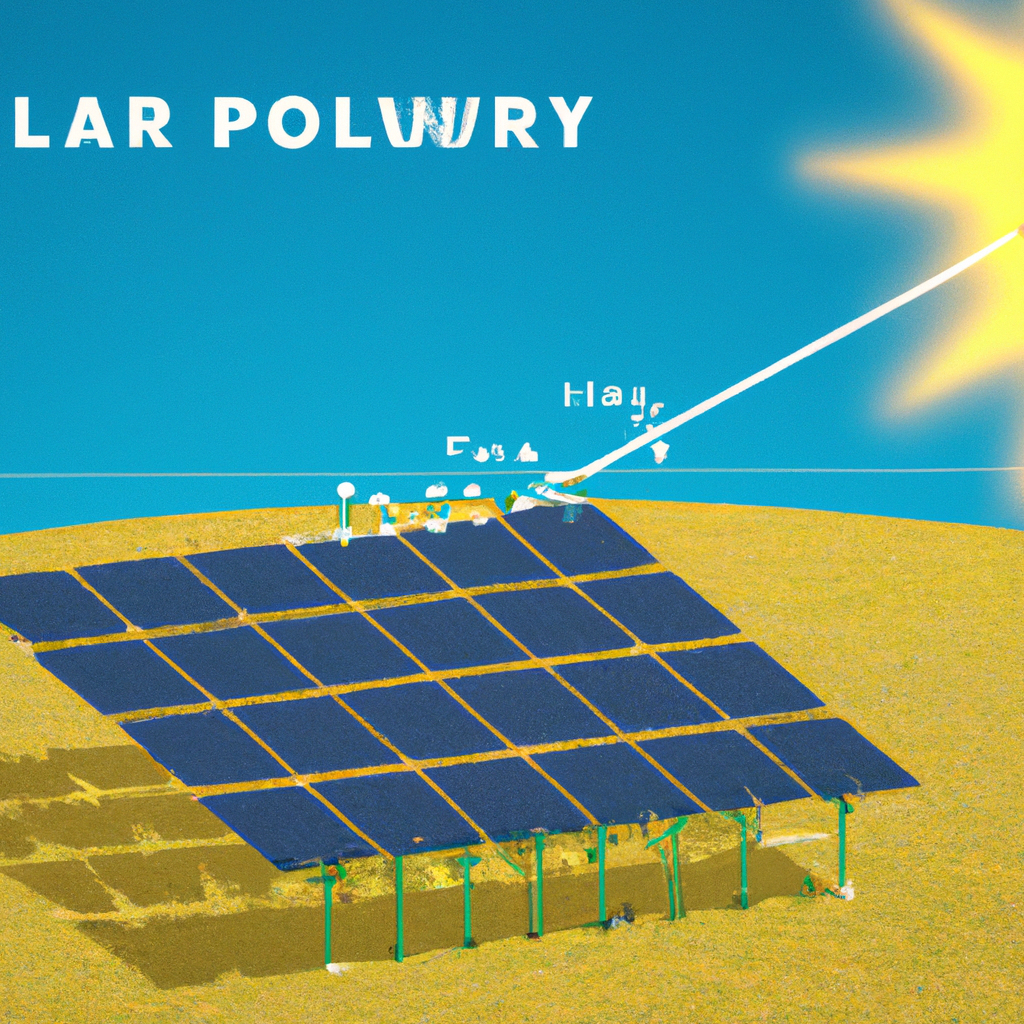Solar power is a renewable energy source that is rapidly gaining popularity as a means of generating electricity. It is a clean and sustainable alternative to traditional fossil fuels, which are known to contribute to climate change and environmental degradation. Solar power is generated using photovoltaic (PV) solar panels, which capture sunlight and convert it into electricity. In this article, we will explore how solar power works and its benefits as a renewable energy source.
How Solar Power Works
Solar power is generated using photovoltaic (PV) solar panels, which are made up of silicon cells that are capable of converting sunlight into electricity. When sunlight hits the solar panel, it causes the electrons in the cells to move, generating an electric current. The electricity is then captured by the solar panel and sent to an inverter, which converts the DC (direct current) electricity into AC (alternating current) electricity that can be used to power homes and businesses.
The solar panels are typically mounted on rooftops or ground-mounted in solar farms, where they can capture the maximum amount of sunlight. The amount of electricity generated by a solar panel depends on several factors, including the amount of sunlight it receives, the angle at which it is mounted, and the efficiency of the solar panel.
Benefits of Solar Power
Solar power offers several benefits as a renewable energy source. Some of the key benefits include:
1. Clean and Sustainable: Solar power is a clean and sustainable alternative to traditional fossil fuels, which are known to contribute to climate change and environmental degradation. Solar power generates electricity without emitting harmful pollutants or greenhouse gases.
2. Cost-Effective: The cost of solar panels has decreased significantly in recent years, making solar power a cost-effective alternative to traditional electricity sources. Additionally, many governments offer incentives and tax credits for homeowners and businesses that install solar panels.
3. Energy Independence: Solar power provides homeowners and businesses with energy independence, allowing them to generate their own electricity and reduce their reliance on traditional electricity sources.
4. Low Maintenance: Solar panels require very little maintenance, making them a low-maintenance alternative to traditional electricity sources.
Conclusion
Solar power is an innovative and sustainable alternative to traditional fossil fuels. It generates electricity using photovoltaic solar panels, which capture sunlight and convert it into electricity. Solar power offers several benefits as a renewable energy source, including its clean and sustainable nature, cost-effectiveness, energy independence, and low maintenance requirements. As solar technology continues to improve, it is likely to become an increasingly popular alternative to traditional electricity sources.







